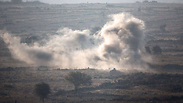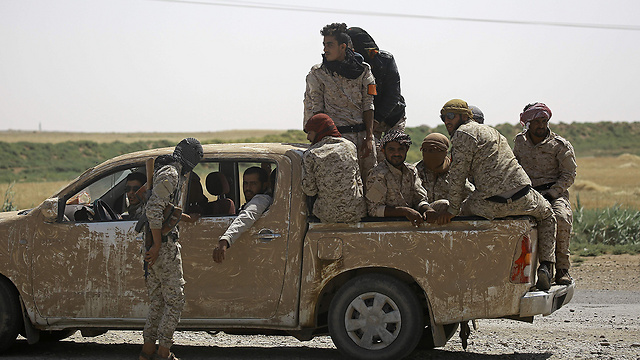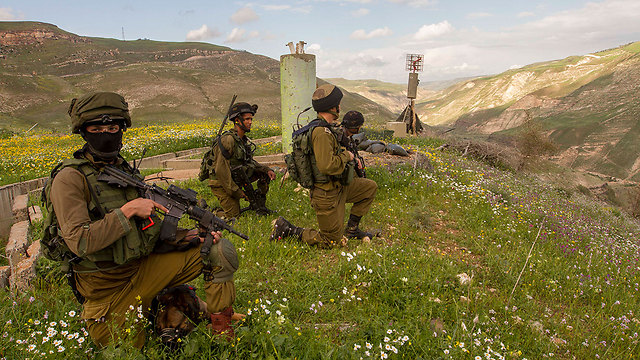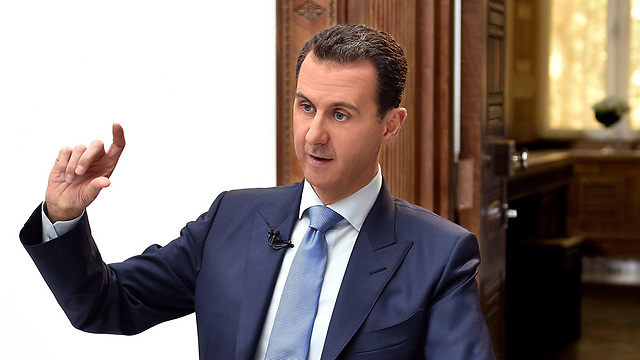According to the report published on Sunday, the goal of the covert involvement is to create a buffer zone between the two countries populated by friendly forces.
The report relies on interviews with five Syrian rebels who say the IDF maintains contact with opposition organizations and the aid it supplies includes payments to rebel commanders, which they in turn use to pay the salaries of fighters and purchase weapons and ammunition.
According to the report, an official familiar with the issue said Israel has established a secret military unit with a special budget to oversee aid to the Syrian rebels.
Israel has treated some 3,000 wounded Syrians since 2013, many of them combatants. Additionally, it supplied humanitarian aid such as food and clothing to Syrian civilians near the border, especially during winter.
"Israel stood by us in a heroic way; we wouldn't have survived without its aid," said Moatassem al-Golani, spokesman for the rebel organization Fursan al-Joulan (Knights of the Golan).
According to the report, Israel's goal is to keep fighters allied with the regime of Syrian President Bashar Assad and supported by Iran, such as Hezbollah, far away from the Israel-Syria border, which stretches over 70km.
A commander from the Fursan al-Joulan, known as Abu Suhaib, claimed his organization receives $5,000 a month from Israel. Fursan al-Joulan is not affiliated with the Free Syrian Army—which is supported by the international coalition—and does not receive aid or weapons from the West.
According to Syrian rebels quoted in the report, Fursan al-Joulan is the main rebel group in contact with Israel and the IDF. Fighters say contact with the IDF was initiated in 2013 and Israel has been supplying the organization with money and other aid ever since.
Israeli support for rebels is likely to increase tension with the Assad regime, which has been accusing Israel of such support for some time. Assad has said in the past that Israel supports rebel groups and conducts airstrikes in Syrian territory to undermine the regime's control.
Israel has denied such accusations, saying it is not involved in Syria's civil war.
The threat of a permanent presence of Iranian or Hezbollah forces on the Syrian side of the Golan could possibly drag the IDF into the civil war.
Israeli officials have not ruled out the possibility of such an escalation and have also cultivated other relationships with Arab states against their common enemy—Iran.




















